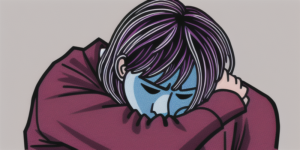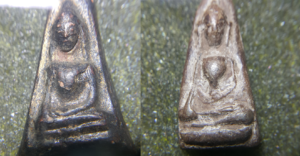Procrastination is a form of resistance, it’s the mind’s protective mechanism, a fortress built to maintain the status quo. It’s the echo of our fears, the manifestation of our inner reluctance to step out of our comfort zones, to challenge our beliefs, to embrace change and to act on new information or insights.
Procrastination is the constant seeking of comfort that limits to our evolution.
We often find solace within our comfort zones. It’s a realm where everything is predictable, familiar, and in line with our current beliefs and understanding. The mind, in its quest for stability and order, gravitates towards this perceived comfort, weaving a tapestry of illusions that promotes stagnation and resists change. This comfort zone, though seemingly secure, is in reality a padded cell that confines our potential, limiting our evolution.
It’s human nature to avoid discomfort. But the irony lies in the fact that discomfort is the birthplace of growth. The transformation of a caterpillar into a butterfly, the formation of a diamond under extreme pressure, the blooming of a lotus in the mud, all exemplify this truth. They symbolize the courage to transcend adversity and the power of transformation. And we humans are no different.
When we refuse to step out of our comfort zone, when we resist change, we are essentially resisting evolution, inhibiting our growth. Just as a river needs to flow to maintain its vitality, so too does our consciousness need to flow, to grow, to evolve. Stagnation is antithetical to this natural process.
Evolution is not a process that can be rushed, but neither is it one that can be put on hold. Our consciousness is always on the move, it’s a continuous journey from the known to the unknown. It requires courage to venture into uncharted territories, to step into unfamiliar domains.
But remember, each step we take outside our comfort zone is a step towards a more evolved, more enlightened self. It’s a step towards understanding the universe within us and around us. It’s a step towards the realization of our true potential.
Beliefs, Procrastination and Destiny:
Beliefs are powerful. They shape our perception of the world, guiding our thoughts, decisions, and actions. They form the framework within which we operate, the lens through which we interpret reality.
Imagine your belief as a warm, cozy room. A room filled with familiar objects, comforting shadows, and soft melodies. You’ve been living in this room for so long that its walls have become your sanctuary. This room of belief is your comfort zone. And within this comfort zone, you justify your actions, you validate your decisions. It feels safe, it feels right.
However, beliefs are not set in stone. They’re meant to be challenged, expanded, and refined. When teachings or criticisms knock on the doors of this comfort zone, attempting to introduce new furniture or play a different melody, it can feel like an intrusion, an unsettling disturbance. The resistance to this change, to this displacement from comfort, often manifests as procrastination.
Consider a person who has been smoking for years. This individual finds comfort in their habit, justified by the belief that it helps them relax or concentrate. When they encounter health warnings or advice to quit, it challenges their comfortable belief. There is an initial resistance, a tendency to delay or avoid the uncomfortable process of quitting. The individual continues their habit until one day, a health scare forces them to confront the reality. They are pulled forcefully out of their comfort zone, often accompanied by regret.
Or consider an employee in a company who firmly believes in their traditional work methods. When introduced to a new, more efficient software or process, they resist the change. They justify their decision by the comfort they find in their familiar routines, thinking it’s the right way. It’s only when the company’s productivity starts to lag, or they receive a warning, that they’re compelled to adapt to the new methods.
In both examples, the individuals procrastinated, preferring to remain in the comfort of their established beliefs. They resisted change until external circumstances left them with no other choice. Their procrastination led to regret, a realization that came too late.
Remember, the universe whispers before it screams. The whispers come in the form of teachings, criticisms, signs, and opportunities. If ignored, they become louder until they turn into unavoidable circumstances, forcefully pulling us out of our comfort zones.
There exists yet another shade of procrastination, veiled under the guise of fate or destiny. It is observed in individuals who, even when confronted with the harsh consequences of their delayed actions, seek refuge in the comforting notion of predestination.
When these individuals hit a wall, when circumstances force them out of their comfort zone, they tend to attribute the outcomes to destiny rather than acknowledging their own role in shaping those outcomes. “It was meant to be,” they say, absolving themselves of responsibility, and laying the blame on the unchangeable course of karma.
This belief serves as a balm, a soothing narrative that excuses their procrastination and inaction. It reinforces their comfort zone, allowing them to retreat back into it, under the assurance that the course of their lives is out of their hands. They console themselves by accepting the circumstances as their destiny, thus eliminating the need for self-examination, change, or growth.
Yet, this is a profound misunderstanding. While we cannot control every event in our lives, we have the power to shape our response, our decisions, and our actions. To attribute everything to destiny is to abdicate our personal agency, our capacity for conscious action.
Those who fall into this pattern of thinking often find themselves trapped in a cycle of stagnation. Their belief in an unchangeable destiny becomes a self-fulfilling prophecy, wherein they cease to enact meaningful changes in their lives, resigning themselves to whatever comes their way.
To evolve, we must recognize this pattern for what it is: another manifestation of resistance to leaving our comfort zone. We must remember that while destiny might set the stage, it’s our actions, or lack thereof, that play out the scene.
Procrastination is a habit that keeps us tethered to our past. Let’s cut these chains and soar into the realms of limitless possibilities.
The mind that evolves is the mind that embraces change, that takes conscious actions, that steps out of the cocoon of comfort and spreads its wings to soar into the skies of wisdom. The evolution of our consciousness happens when we become courageous enough to step out of the cocoon of comfort and familiarity.





